Hundreds of thousands of Puerto Ricans are expected to gather for the country’s largest protest in recent memory on Monday, declaring that they won’t stop until Gov. Ricardo Rosselló resigns.
The mass protest comes a day after Rosselló announced he would not resign, but he would step down as leader of the New Progressive Party and that he would not seek re-election. “To every Puerto Rican—I have heard you, I have committed errors but I am a good man who has a great love for his island and it’s people,” the San Juan governor said Sunday. “In spite of everything, I recognize that apologizing isn’t enough, that only my work will help restore confidence… facing that scenario, I announce to you that I will not seek re-election next year.”
Rosselló said he wants to leave his predecessor a good economy and have a smooth transition, but protestors say that there will be no peace until he resigns. Puerto Ricans who are protesting say they feel Rosselló’s announcement was insulting, and it has only fueled their resolve.
Today’s mass protest comes after nearly two weeks of marches targeted at the governor, have been joined by some of the island’s biggest stars, including Bad Bunny and Ricky Martin. The protests began after offensive chat messages between Rosselló and his allies leaked to the media. The messages exposed what protesters called a reprehensible indifference to Hurricane Maria victims, as well as alarming instances of bigotry and sexism. And following the arrests of two of Rosselló’s top officials on charges of fraud, the messages inflamed anger over what many say is the Puerto Rican government’s incompetence and corruption following the devastating 2017 storm and years of economic trouble.
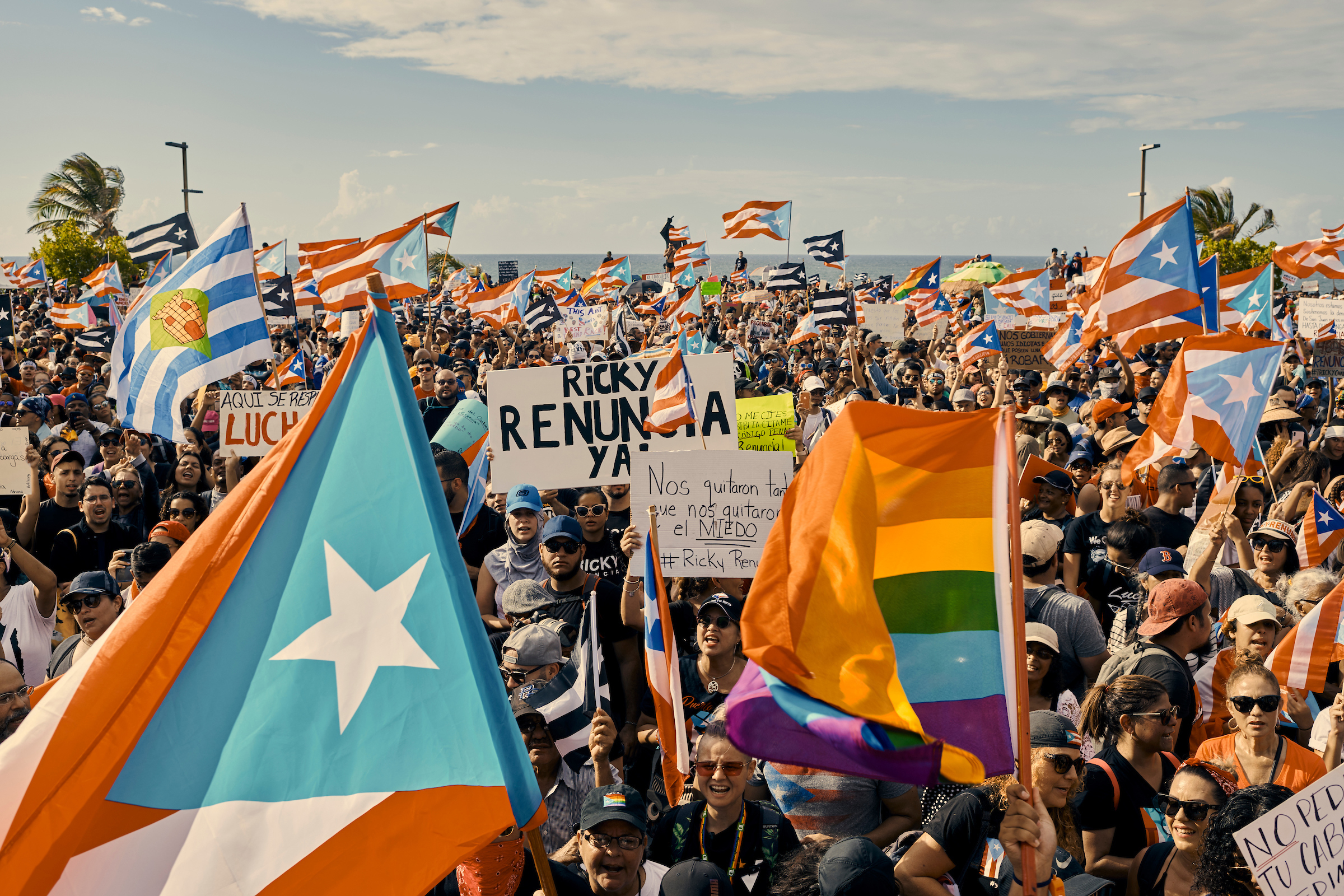
For many on the ground, forcing Rosselló’s resignation would be just the first step in fixing a government they feel has let them down when they needed them the most — and a culmination of years of bad economic policy, natural disaster and corruption that have pushed many everyday Puerto Ricans to the edge.
Rochester, N.Y. resident Milagros Concepcion, 48, arrived in San Juan Monday morning to attend today’s protest. She says marchers were lively and peaceful, with every group—including people with disabilities, young and old and the LGBTQ community—represented.
“It’s absolutely incredible, it’s the most beautiful thing,” she tells TIME. “It’s peaceful, mostly singing, chanting, lots of different signs. Everyone is being super kind to one another, it‘s amazing.”
Concepcion was motivated to attend today’s protest because of her mother, who lost her home to Hurricane Maria. Concepcion says she traveled to Puerto Rico after the storm and she saw the “terrible” handling of the recovery efforts with her own eyes.
“It’s important to be here because we are not stopping- and that’s really the message of today,” she says. “People are not going to stop, because people are very angry — people are mad. If you are Boriqua, one thing you know is you do not make Puerto Rican people mad. We’re kind people, we’re generous people; but this is enough.”
Concepcion said Rosselló’s announcement on Sunday was not enough and said there is no possibility of the Puerto Rican people forgiving him.
“It was so insulting,” she says. “People are just so mad because he took advantage of our people-our kids, the sick and elderly and they are never going to forgive him.”
Rosa Clemente, an Afro-Puerto Rican political commentator from the Bronx, was also in the middle of marching on Monday toward the governor’s mansion.
Clemente says protestors are motivated by the fall out from Hurricane Maria and anger over Rosselló’s corruption that she says goes back decades, even during his father Pedro Rosselló’s term as governor from 1993 to 2001.
Clemente says she was unimpressed with Rosselló’s announcement on Sunday.
“We already knew he wasn’t going to run for office, the whole point is that he needs to resign,” she tells TIME. “The fact that he wasn’t running for re-election was not news, because even if he did he would have lost. The bigger issue is that our island has been abused, by the U.S and our corrupt governors, and this has been going on for decades. For years people have been taking and taking from our island and even though we have American citizenship, were treated like second class citizens. Were finally standing up.”
Clemente is not sure if today’s protest will lead to Rosselló’s resignation, but she is sure that the Puerto Rican people will not stop until he leaves office.
“Everyone on this island is supporting this,” she says. “This country will be at a standstill until he leaves.”
Puerto Rican activist Julio López Varona, an organizer for the New York-based Center for Popular Democracy––one of the groups behind the protests, says the protestors’ initial goal is to get Rosselló to resign, but their ultimate goal is to push to elect a government that will genuinely fight for them.
“It feels like this is a moment of change, everyone is compelled to do and say something,” López Varona tells TIME. “For people who have been activists trying to raise issues around government, this is a moment that feels important, which is exciting, but it’s also a moment of caution and pause. We understand that Rosselló has to resign, but we know it doesn’t change anything, the structure that put him in power will still be there, so it is important that we raise the issue of Rosselló resigning but also what happens next.”
Now, Puerto Ricans have decided to take their fate into their own hands. Here is how they got here:
What is ‘Chatgate’
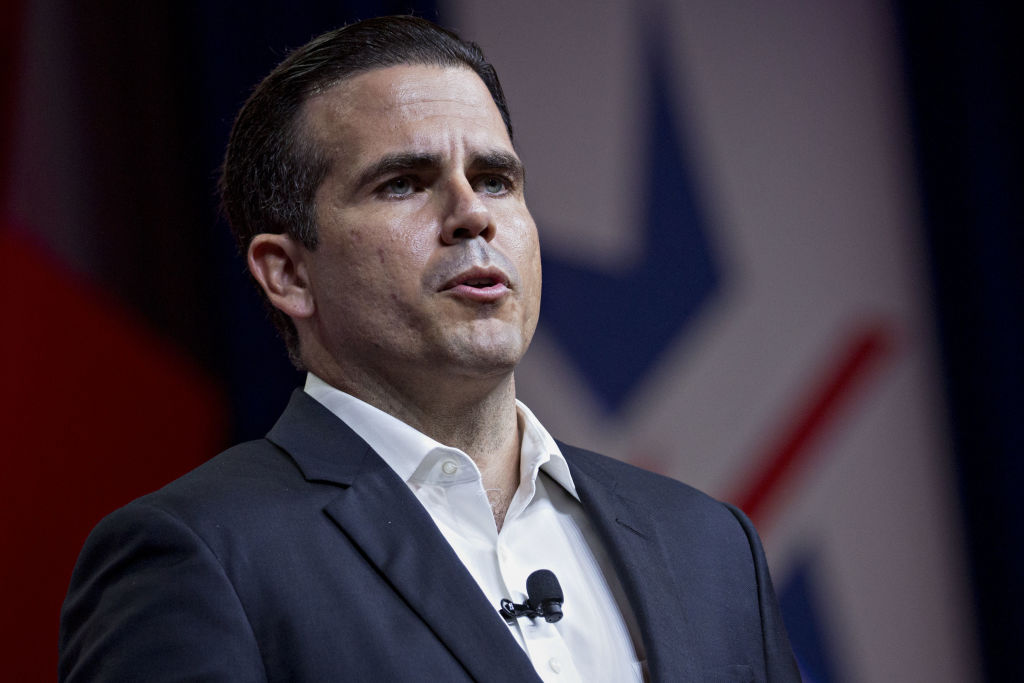
Tensions came to a head last week when the Puerto Rican Center for Investigative Journalism published 889 pages of messages exchanged between Rosselló and nine government associates on the messaging app Telegram.
Transcripts of the messages — which date from November 2018 to January 2019 — show Rosselló and his associates, including Secretary of State Luis Rivera Marin and Chief Financial Officer Christian Sobrino Vega exchanging privileged information and discussing issues of public policy, the Center for Investigative Journalism said. Marin and Vega have since resigned, but protestors say that is not enough.
What has drawn the most outrage from protestors was what many characterize as the casual disregard for the Puerto Rican people displayed in the messages, which they say proves Rosselló’s government does not have the welfare of its people in mind.
“The hurricane was an important moment for a lot of people in Puerto Rico,” López Varona says. “People died and when you read the messages, it felt like they were making fun of a sacred thing. You should not be making fun or light of the suffering of the people in Puerto Rico. We knew that there were people making money off of our suffering, but it’s different when you actually read it — you think ‘No, this is not right.’ So in a way, the messages were the catalyst, it was clear these people should not be running the government.”
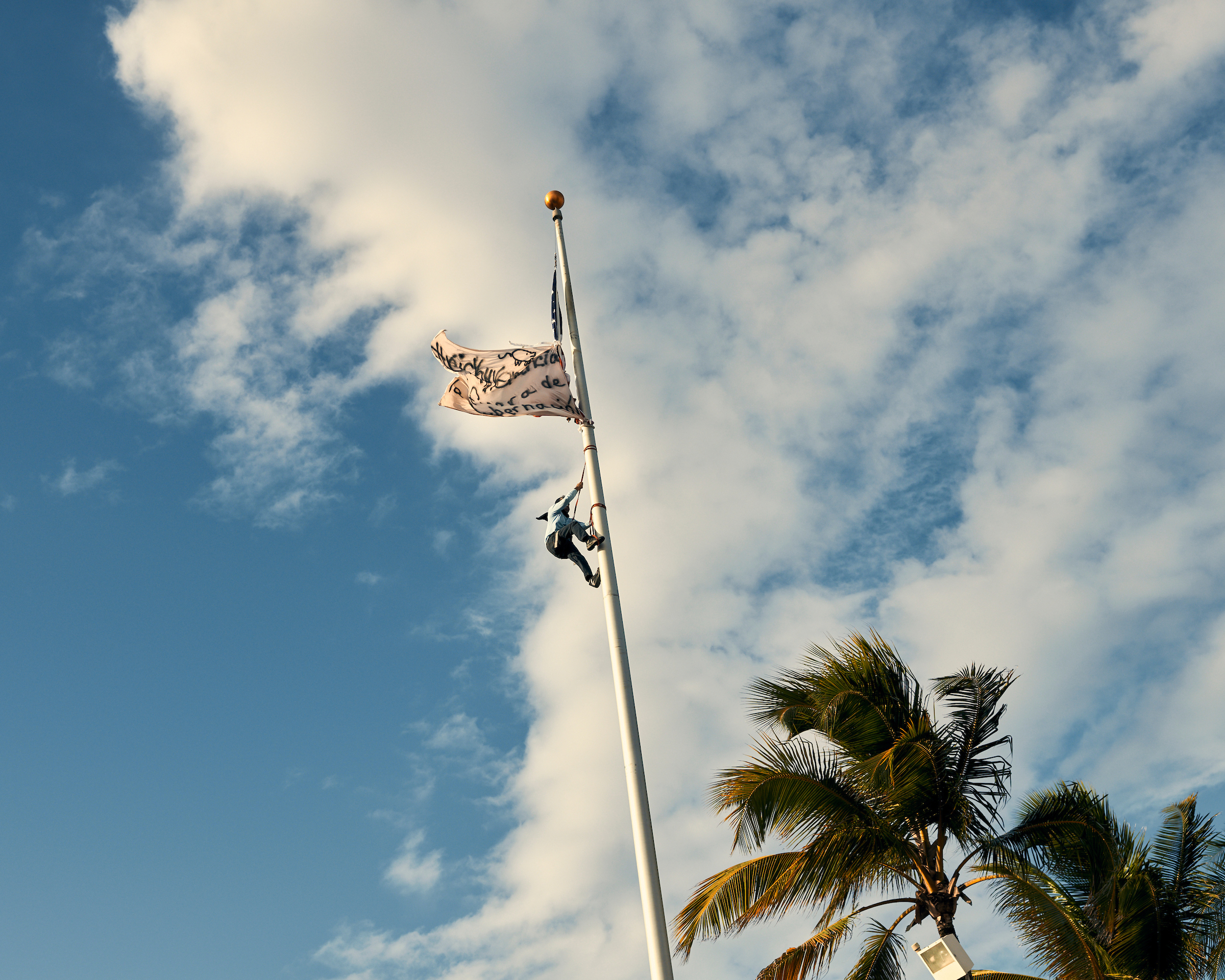
In one stunning exchange, Sobrino Vega uses the accumulating death toll from Maria as a punchline to a joke about the administration’s critics. When asked about the budget for forensic pathologists he responded, “Now that we are on the subject, don’t we have some cadavers to feed our crows?” He then added, “Clearly they need attention.”
“That was kind of the point when we were like ‘holy sh-t,'” López Varona says.
The official death toll from Hurricane Maria was originally 64, but studies showed the storm likely caused thousands of deaths.
Members of the chat also casually use homophobic and sexist language. In one exchange, the group joked about shooting San Juan Mayor Carmen Yulín Cruz, to which Rosselló responded “You’d be doing me a huge favor.” Rosselló refers to Melissa Mark-Viverito, the Puerto Rican-born former speaker of the New York City Council as a “whore,” and there are several homophobic jokes about Puerto Rican pop star Ricky Martin, who is openly gay.
Luis Martinez-Fernandez, a history professor at the University of Central Florida, tells TIME that the look into the mindset of the governor’s inner circle combined with corruption charges against members of his administration confirmed many people’s widely held beliefs about elites in Puerto Rican government.
“The most damaging thing is their behavior,” he says. “That idea that they’re superior to the common Puerto Rican. They have these privileges and spend the government money the way they wish. What has really triggered protest is this chat, the language really crossed a line.”
Outrage against Education Secretary Julia Keleher
On July 10, six high-ranking officials in Rosselló’s administration were indicted on 32 counts of money laundering, conspiracy and wire fraud.
Former Education Secretary Julia Keleher and another official were accused of directing up to $15.5 million dollars between 2017 and 2019 in federal funds toward politically connected contractors.
During her stint as Education Secretary, Keleher was widely criticized for her push to privatize the island’s public school system in the wake of Maria. Her plans also included massive cuts, teacher layoffs and school closures.
During a press conference announcing the charges, U.S Attorney for the District of Puerto Rico Rosa Emilia Rodríguez, called the defendant actions “shameful.”
“It’s a pity that we see this kind of scheme,” she said. “There is so much work to be done in Puerto Rico and the people accused here profited from this, they sought to benefit their own personal interests and did not think they could help or that they were in a position to help Puerto Rico.”
Keleher’s attorney María Domínguez told the Weekly Journal that she is confident in her client’s innocence.
“We are going to raise strong defenses as the case evolves. In terms of cooperation, I can tell you that the only cooperation that my client is giving is that she is cooperating fully with court orders,” she said.
Protestors say the charges show Keleher and Rosselló were willing to sell out the Puerto Rican people for profit.
“I think the governor surrounded himself with people that had an idea of what Puerto Rico should be that had nothing to do with the well-being of the Puerto Rican people,” López Varona says. “These are neo-liberal capitalists using government as a bank which they could make money off of.”
Celebrity response to the protest
On Wednesday Puerto Rican stars Ricky Martin, Bad Bunny and actor Benicio Del Toro joined protest against Rosselló.
The celebrities joined marchers on the capital and showed support for protestors, speaking to the crowd and waving the Puerto Rican flag.
Singer Ricky Martin, who was mocked in the chat, posted a video on Twitter Tuesday announcing his participation.
In the video, he said he is frustrated and annoyed and that the only way he can feel better is to travel to Puerto Rico and walk among his own people.
“When Puerto Rico unites, marvelous things happen and we can change history, we’ve done it before,” he says in Spanish.
Puerto Rican Latin trap artist Bad Bunny also took to social media to comment on the protest. On a video posted to Instagram, he thanked fellow Puerto Ricans who have been brave enough to stand up and fight for their country. The singer postponed a planned show in Ibiza, Spain to participate in Wednesday’s march.
“I want everyone who has never taken part in a protest to come out, without any fear and with a sense of purpose,” he said in Spanish.
How Hurricane Maria plays a role in the current protests
While the chat leak was the final straw for many, Rosselló’s problems truly started with what many say was his poor handling of Hurricane Maria.
In September 2017 the Category 5 hurricane brought destruction to the Caribbean islands of U.S Virgin Islands, Dominica, and Puerto Rico.
Puerto Rico faced widespread flooding and blackouts, made worse by a slow response from the federal government. The island, a United States territory since 1898, is home to nearly 3.2 million people. Puerto Ricans are U.S. citizens.
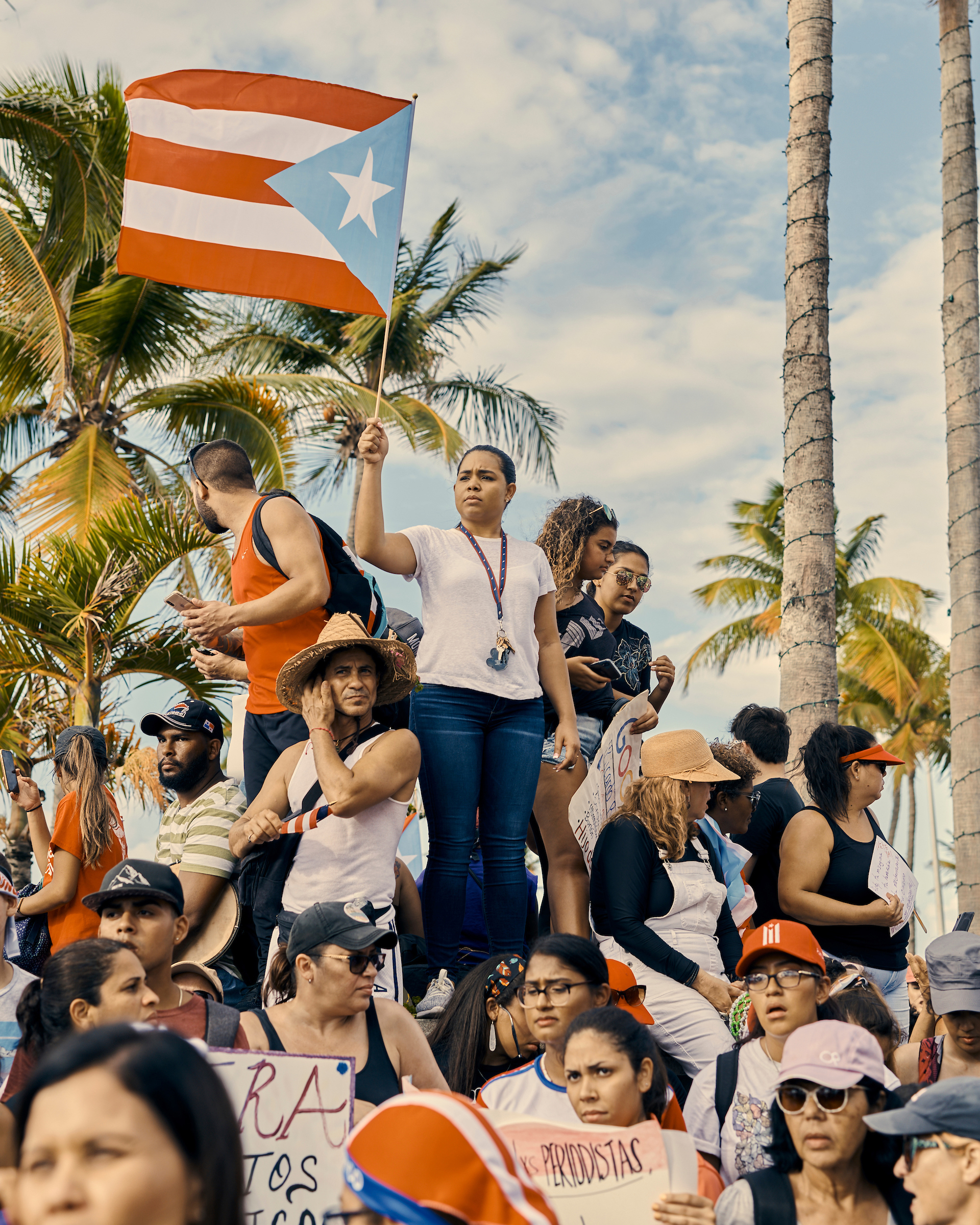
Many Puerto Ricans say that island officials, including Rosselló, did not do enough to stand up to President Donald Trump following his controversial response to the devastating storm.
The governor was also heavily criticized for his post-recovery effort, and for his year-long claim that there were only dozens of casualties until a large study found that almost 3,000 citizens died as a result of Maria. That same study found that failures in government institutions contributed to the death rate, especially for poorer Puerto Ricans.
Hurricane Maria also drove Puerto Rico — which was already in a financial crisis prior to the storm — into further debt.
Maria is still on most protestors’ minds as they march down the streets of San Juan, and López Varona says that the government failed the people before and after the disaster.
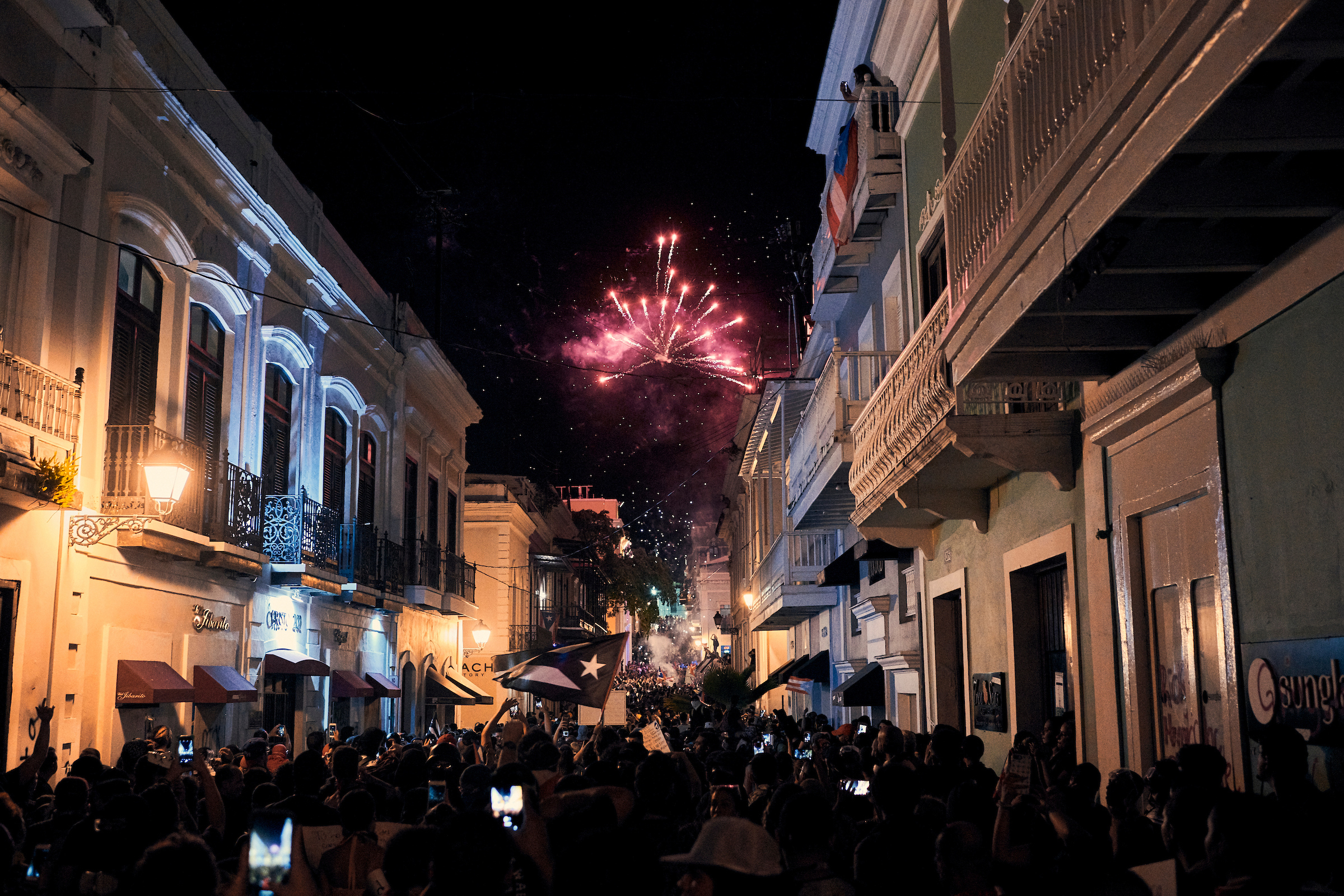
“I think Maria was a culmination of things that were happening,” he says. “Puerto Rico was already in a financial crisis for 10 years, and even before Maria 10% of the population had left — the hurricane just exasperated everything. The infrastructure couldn’t sustain itself, and it hadn’t been maintained, all of these things were examples that Puerto Rico was not prepared, and the people who ruled us did not care about the well-being of Puerto Rico.”
Martinez-Fernandez, the history professor, predicts that in the end, Rosselló will not be able to overcome the scandal.
“I think I’m going to witness his resignation, which would be the first-ever,” he says. “This is just a combination of too many factors––corruption, immorality, hate speech against women. The chat leak really demonstrated how inept and arrogant he is.”
Correction: July 18
The original version of this story misspelled Julio López Varona’s name. It is López Varona, not Lopez-Verona.
More Must-Reads from TIME
- Donald Trump Is TIME's 2024 Person of the Year
- Why We Chose Trump as Person of the Year
- Is Intermittent Fasting Good or Bad for You?
- The 100 Must-Read Books of 2024
- The 20 Best Christmas TV Episodes
- Column: If Optimism Feels Ridiculous Now, Try Hope
- The Future of Climate Action Is Trade Policy
- Merle Bombardieri Is Helping People Make the Baby Decision
Write to Gina Martinez at gina.martinez@time.com